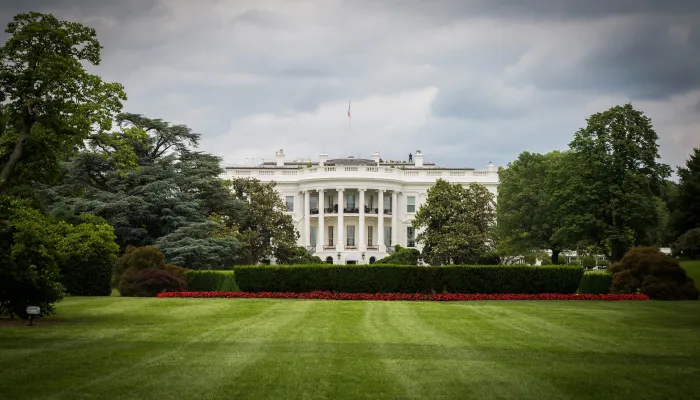Site-Neutral Legislative Proposals Gaining Traction
One of the best ways to reduce health care costs would be to move towards “site-neutral” payments and away from the current system’s inefficient payments based on site-of-care. Encouragingly, recent legislation covering the issue appears to be gaining traction in Congress. There are at least ten different proposed bills in varied stages of the legislative process that cover many issues but have provisions on site neutral payments and related billing transparency.
Our Health Savers Initiative found that for common services in Medicare, fully site-neutral payments between on-campus and off-campus hospital outpatient departments (HOPDs) and independent physician offices could save Medicare an estimated $150 billion over a decade and reduce beneficiary premiums and cost sharing by over $90 billion. Such changes in Medicare would also lead to lower commercial market prices. Separately, we found that targeted policies to promote site-neutral payments in the commercial insurance market could reduce deficits by nearly $120 billion and national health expenditures by over $450 billion over a decade.
On the Medicare side, several bills would take incremental steps towards site neutrality. The bipartisan Site-based Invoicing and Transparency Enhancement (SITE) Act, sponsored by Senators Mike Braun (R-IN), Maggie Hassan (D-NH), and John Kennedy (R-LA), fully imposes site-neutral payments for off-campus HOPDs and removes the “grandfathering provision” from the Bipartisan Budget Act of 2015 that exempted older off-campus HOPDs from site neutrality. As we have discussed before, this change is estimated to save between $30 and $40 billion over ten years. Other bills that would eliminate the grandfathering provision include the Preventing Hospital Overbilling of Medicare Act introduced by Representative Victoria Spartz (R-IN) and the Health Care Fairness for All Act introduced by Representative Pete Sessions (R-TX).
A more limited proposal, the Promoting Access to Treatments and Increasing Extremely Needed Transparency (PATIENT) Act, put forward by House Energy and Commerce Committee Chair Cathy McMorris Rogers (R-WA) and Ranking Member Frank Pallone (D-NJ), would implement site-neutral policies only for prescription drugs administered under Part B of Medicare in off-campus HOPDs. This provision was recently scored by the Congressional Budget Office (CBO) as saving $4 billion over 10 years.
Another recently introduced bill by House Ways and Means Committee Chairman Jason Smith (R-MO), the Health Care Price Transparency Act, contains a similar site-neutrality provision but with additional exclusions and later phase-in dates. The Medicare Patient Access to Cancer Treatment Act, introduced by Representatives Jodey Arrington (R-TX), Debbie Lesko (R-AZ), and Michael Burgess (R-TX), would impose site-neutral payments specifically for cancer care services under Medicare Part B.
Exclusively covering the commercial market, the recently drafted Primary Care and Health Workforce Expansion Act from Chairman of the Senate Health, Education, Labor, and Pensions (HELP) Committee Bernie Sanders (I-VT), contains provisions that largely mirror the set of policies modeled in our Health Savers Initiative commercial market brief. The bill includes a cap on the prices that could be charged by HOPDs, limiting them to the median price charged by independent physician offices. It also prohibits HOPDs from sending separate bills for facility charges and fees.
All of the bills above also seek to improve billing and pricing transparency. In recent years, hospitals have been purchasing independent physician offices, converting them into HOPDs, and then sending separate bills for hospital facility charges and physician services. However, these arrangements are hard to keep track of for insurance companies because, under current law, hospitals are not required to have separate unique health identifiers for each of their off-campus locations, making it difficult to know exactly where services are provided. This allows hospitals to charge higher prices while making it harder for insurance companies to negotiate the total prices paid for specific services.
To address this issue, the PATIENT Act requires that health systems establish and bill using a unique National Provider Identifier (NPI) number for each off-campus outpatient department and treats outpatient departments as subparts of the parent organization, requiring unique provider identifiers for each subpart. CBO scored this provision as saving a little over $2 billion over ten years.
Similar provisions requiring unique health identifiers for providers are included in all of the legislation discussed above, as well as the Facilitating Accountability in Reimbursements (FAIR) Act introduced by Representatives Kevin Hern (R-OK) and Ann Kuster (D-NH) and the Transparency in Billing Act put forth by House Education and the Workforce Committee Chair Virginia Foxx (R-NC) and Ranking Member Bobby Scott (D-VA). Representatives Jan Schakowsky (D-IL) and Gus Bilirakis (R-FL) also introduced a related bill (H.R. 3262) that would require hospitals and other specified entities to report certain health-related ownership and financial information.
The amalgamation of site-neutral policies currently under consideration by Congress is encouraging and a step in the right direction to achieving real savings in Medicare and the commercial insurance market. However, no individual piece of legislation achieves full site neutrality, and a focused attention on addressing transparency, while important, still leaves a lot of potential savings on the table. Ideally, members will coalesce around legislation that saves substantial money for the federal budget and for patients.
Estimated Savings of Site Neutral Provisions
| Provision | Estimated Budget Savings (10-yr) | Bill(s) |
|---|---|---|
| Medicare site-neutral for all off-campus HOPDs | $30-40 billion | SITE Act Health Care Fairness for All Act Preventing Hospital Overbilling of Medicare Act |
| Medicare site-neutral for all off-campus HOPD drug administration | $4 billion | PATIENT Act Health Care Price Transparency Act |
| Requiring separate NPI for each off-campus HOPD | Up to ~$2 billion | All of the above plus: FAIR Act Transparency in Billing Act Primary Care and Health Workforce Expansion Act |
| Medicare site-neutral for all off-campus HOPD cancer care services | (not scored yet) | Medicare Patient Access to Cancer Treatment Act |
| Commercial market site-neutral – HOPD payment caps | $120 billion | Primary Care and Health Workforce Expansion Act |
Sources: Congressional Budget Office, Committee for a Responsible Federal Budget, and American Hospital Association.


